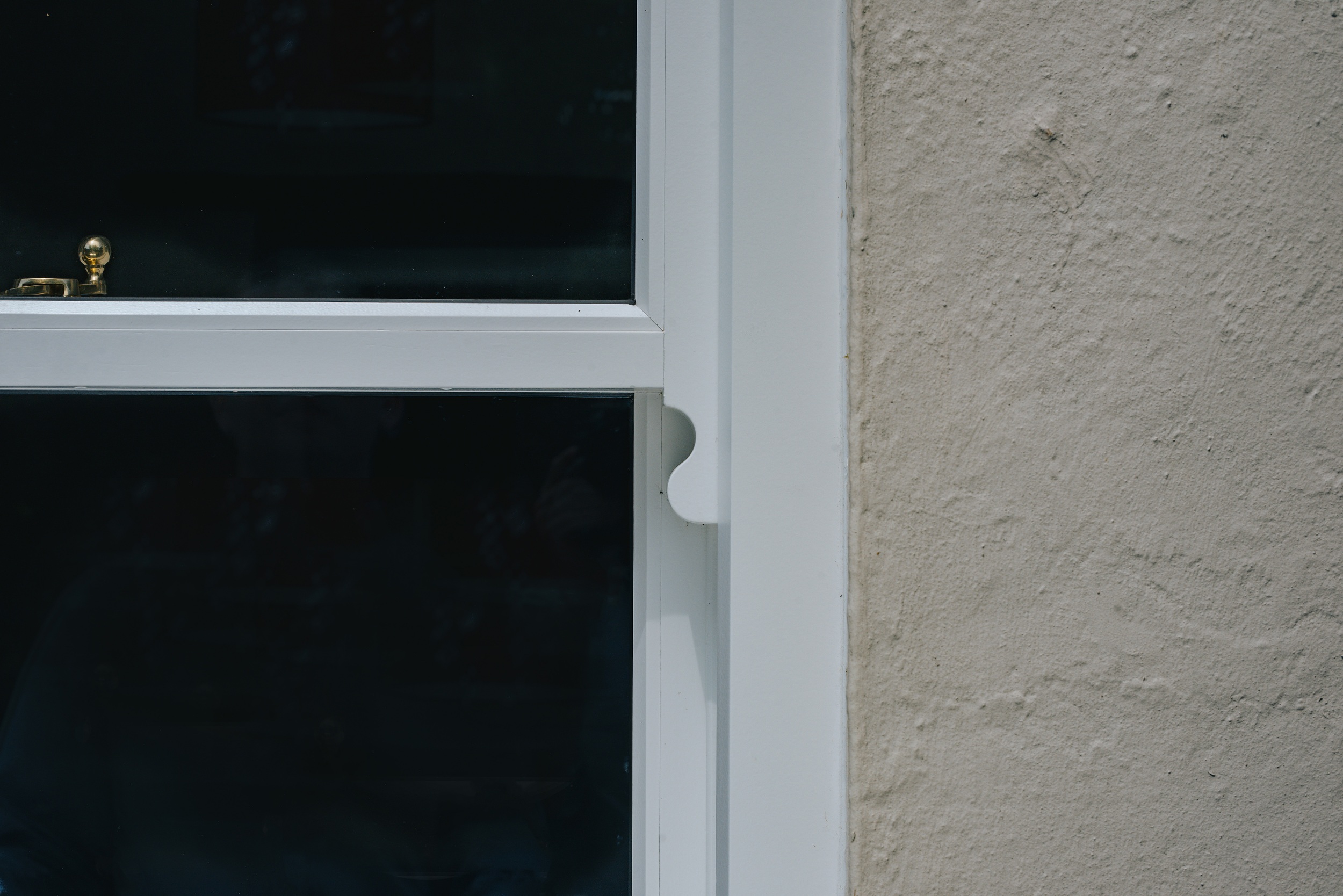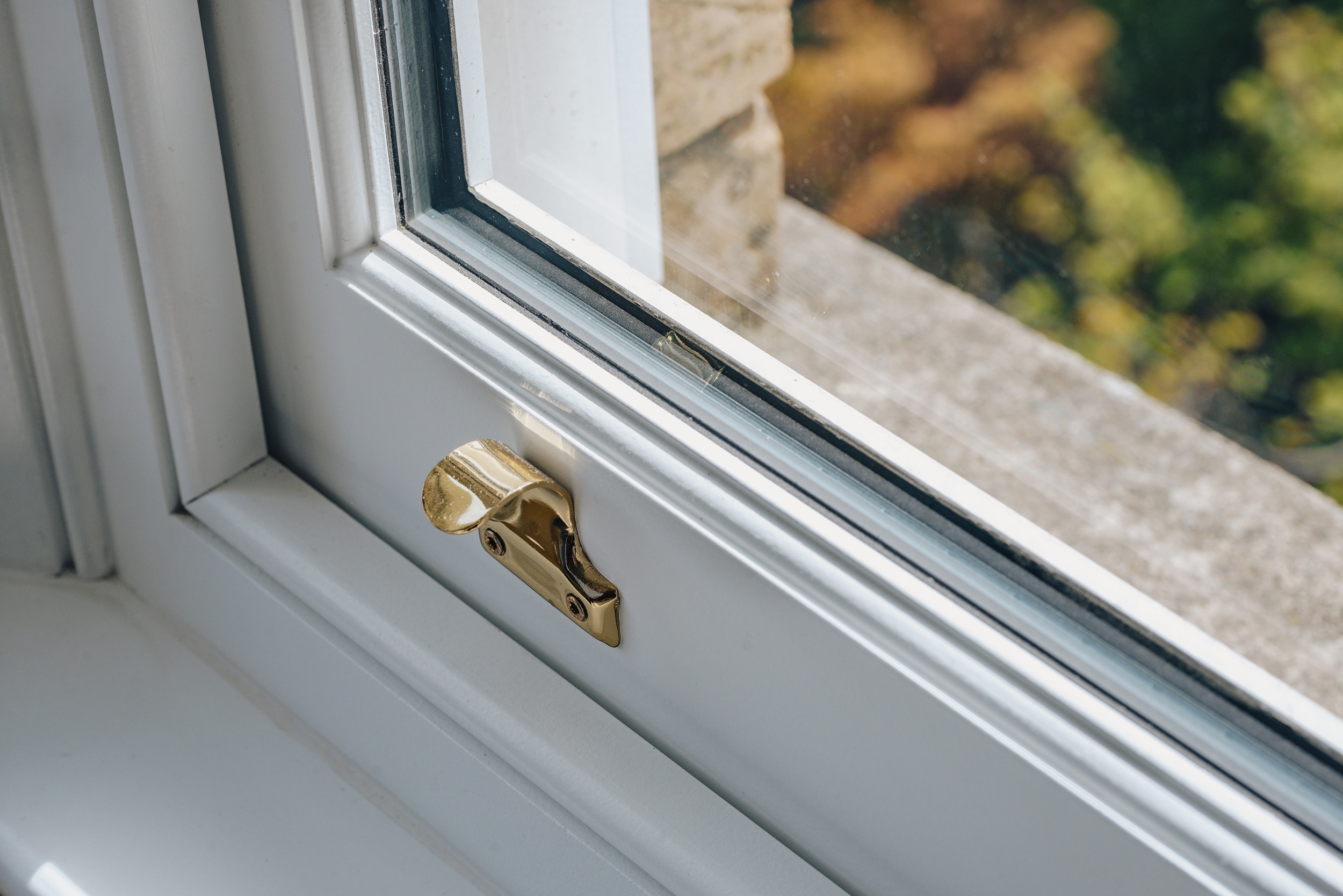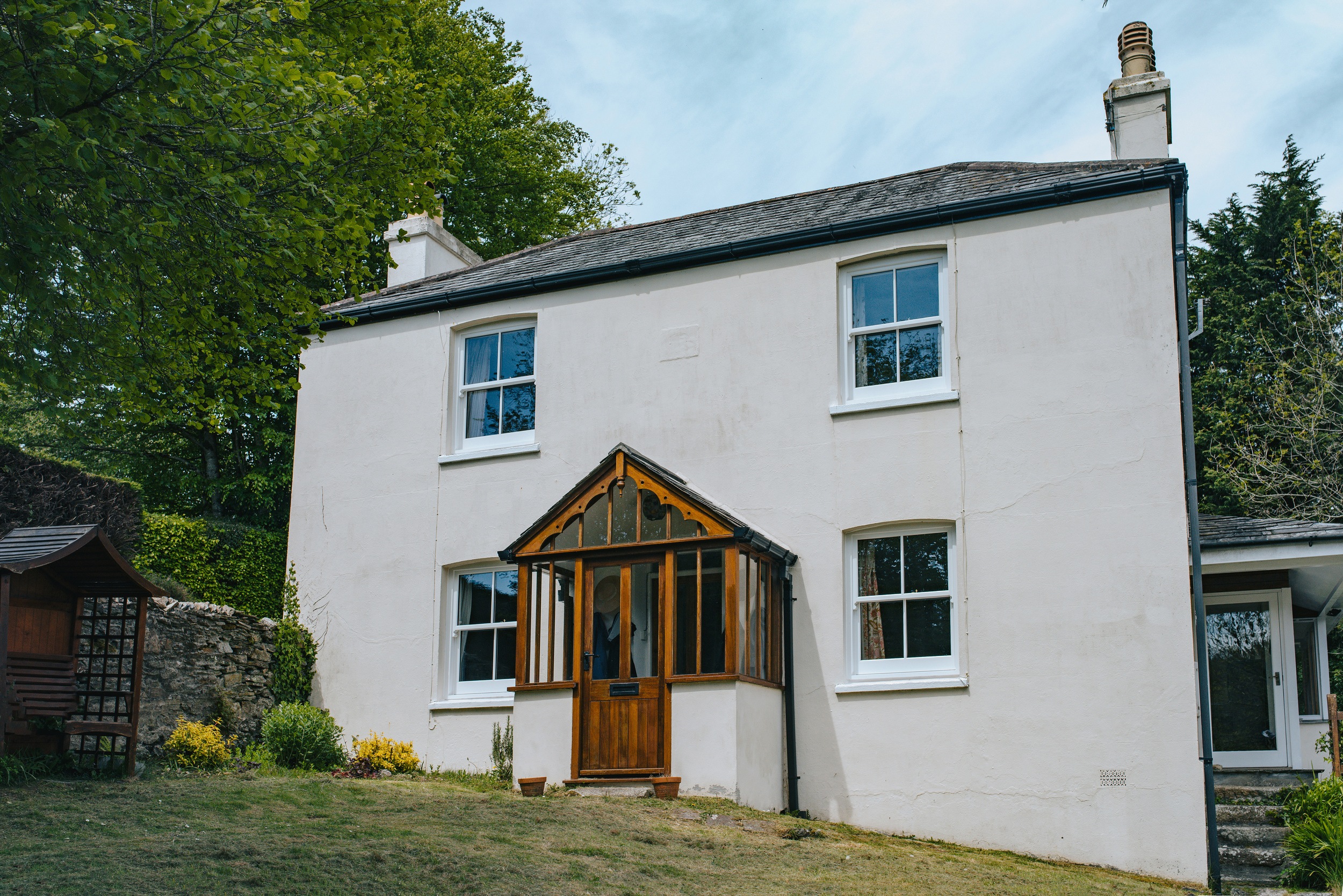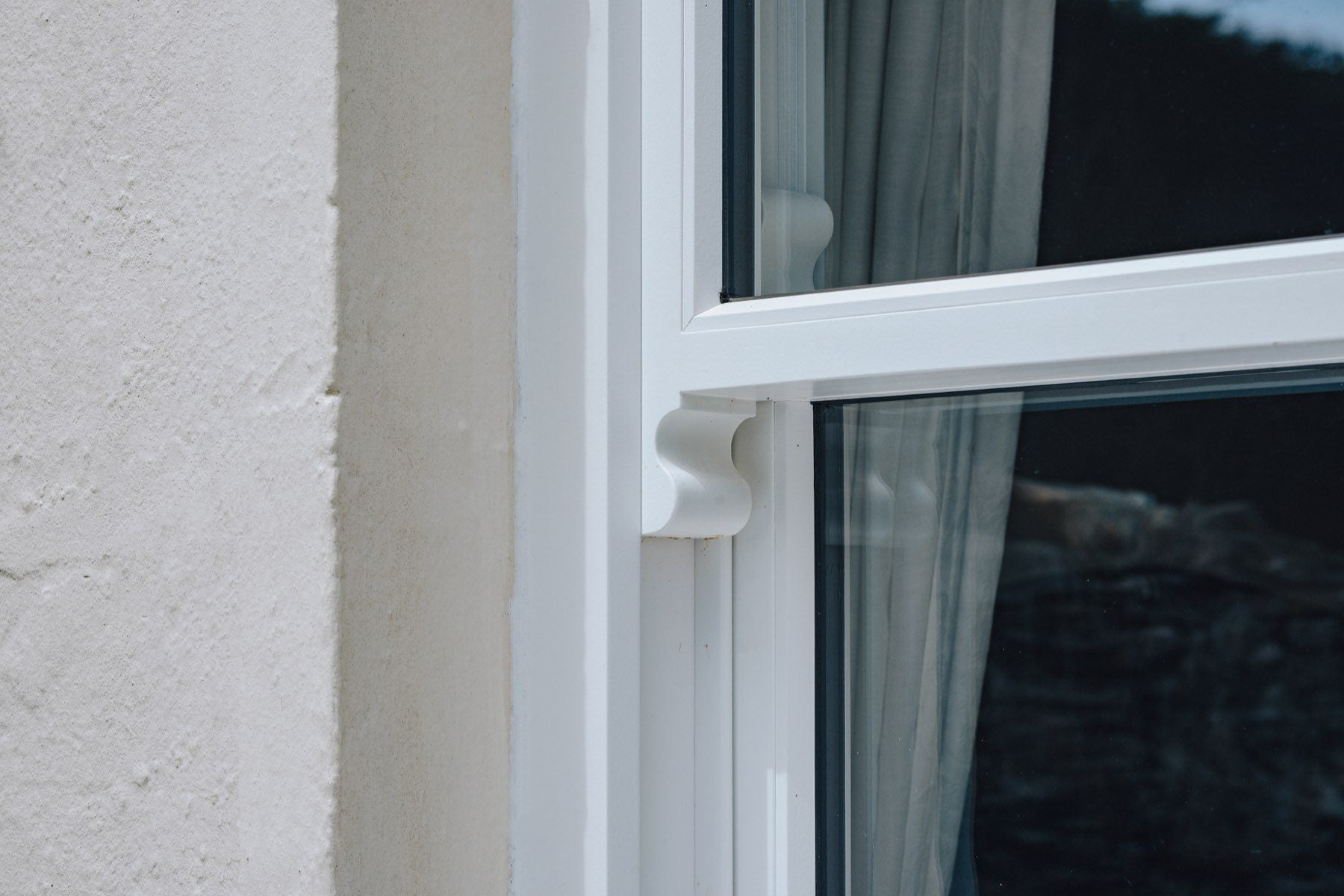« Blog
Wooden Sash Windows – Everything You Need To Know
Posted on: 20th February, 2020
Having beautifully crafted and authentic wooden sash windows will certainly add an elegant and timeless finish to your home. With their rich history, sliding sash windows have been a distinctive property feature since the 17th century and are still a desirable characteristic for many modern and period-inspired homes today.
In this article, we’ll give you as much information on timber sash windows as we can – in fact, everything you need to know: what they are, how they work, and how Nathan McCarter Joinery uses traditional, handcrafted methods to create Accoya® sliding sash windows fit for the 21st century – and beyond.
Sash windows – an ongoing tradition
If timber sash windows are high on your priority list as a traditionally authentic finish to your home, it’s important to think about their function as well as their form and style. Whether you’re working on a restoration project or replacing your home’s existing sash windows, high-quality materials, counterbalance weights, and cords can all make a difference.
The period charm of timber sash windows is very much a part of English history. Properties dating from the 17th up to the 19th century would almost exclusively have had sash sliding windows as a matter of course. Even today, timber sash windows should be treated as a necessity on almost all period property restorations – especially in conservation areas.
Even in today’s eco-friendly new build homes, inspired by the period homes of over 200 years ago, the tradition of sash windows lives on. Not only do they look the part, with period details and inner workings included, but new sash windows can tick all the right boxes for energy efficiency and heat retention too, using hand-cut Planitherm double glazing.
What is a sliding sash window?
Though the term ‘sash window’ is well known, the reasons behind its name and design may not be. So what is a sash window? In simple terms, it’s a window containing one or more moveable, sliding panels – ‘sashes’ – set inside a wood frame.
Depending on which variation you have or prefer, if only the lower sash is movable while the upper sash is fixed, this is known as a single-hung sash window. If both sashes are moveable, this is known as a double-hung sash window.


How does a sash window work?
Fully-assembled with inner workings of a pulley system, counterweights, and heavy-duty cords, the sash can be slid vertically (and sometimes horizontally depending on style) within the timber frame to any chosen position. Thanks to the hidden weights inside, one or both sashes remain in the open position without sliding closed.
One of the key benefits of double-hung sash windows is air-flow in and out of the property. By opening both sashes equal amounts, the top sash allows warmer or stale air to escape, while the bottom sash draws in cooler, cleaner air from outside.
Styles of sliding sash windows
As timber sash windows were common in many homes and buildings over a long period of time, they naturally underwent several design and style changes through each era. These styles have been popular ever since, but when you’re in the process of restoring or replacing sash windows, matching the right style to your period of home is crucial.
A sliding sash window featuring six smaller panes of glass per sash, held in place by thin glazing bars, is a conventional style for Georgian era homes. As is the Half Georgian, where only the top sash features the six smaller panes while the lower sash is filled with a large, single pane of glass.
For Victorian period homes, the Victorian style, also known as a ‘centre bar’, style – features two larger panes per sash. For Edwardian properties, it’s common to have six smaller panes in the top sash, with two larger panes in the lower sash.
Though these are the most standard styles for their period, of course, there’s a wide range and plenty of variations to consider, including True Arch, Swept Head, and Asymmetric styles. It’s important to note, however, that there are no real rules as to which variation you should choose, whatever period your home falls into.

How much will wooden sash windows cost?
We’ve published an article on our wooden windows prices, but for new and replacement timber sash windows and frames, costs will always depend on your preferred specifications, including glazing types (single, or wooden double glazed windows), special features or detailing, and hardware.
Based on the number of variables involved, understandably prices vary, so a bespoke quotation from us will reflect your precise requirements. To give you an accurate costing, we’ll always visit your home or property in person to talk with you personally and get a full understanding of what you need. For more information or arrange a home visit and quotation, please get in touch or call us today.
Which timber is best for sash windows?

As a progressive joinery business, we take our sustainability and environmental responsibilities seriously. As a result, our favoured wood for any period or modern windows is always Accoya. Of course, other timber will also give you the classic finish which uPVC can’t replicate, but Accoya timber has many more benefits.
Though a fast-growing softwood, Accoya has qualities which make it a vast improvement on traditional timber hardwoods, while boosting its eco-friendly and thermal heat retention credentials. It has the highest level of durability, coming with a 50-year guarantee, it has incredible stability so it won’t warp, shrink, or split, and it comes from sustainable sources for low environmental impact and negative CO2 over the wood’s life cycle.
How can Nathan McCarter Joinery help you?
As a brand synonymous with experience, quality, and service, we pride ourselves on our high quality, handcrafted, and bespoke timber sash windows. Giving your home the character and elegant finish it deserves, all our windows are designed, created, and finished in-house by our skilled craftsmen using authentic tooling methods and techniques for a truly original and high-performance product.
We’re more than happy to discuss your window project in more detail, giving all the advice you need to help make the right choice for your home. And you’re welcome to arrange a visit to our Tavistock workshop so you can see our manufacturing process first hand, from design to delivery.
For more information on our range of bespoke sliding sash windows, call us today on 01822 615010 or email us at info@nathanmccarter.co.uk.


